There are many great historical K-dramas out there with varying degrees of accuracy to the real tales that inspired them.
Today we're going to look at the heroine of the hit drama Dae Jang Geum, also popularly referred to as Jewel In The Palace.
What parts did the show stay true to historical facts with and what parts did they take artistic liberties with?
Introduction
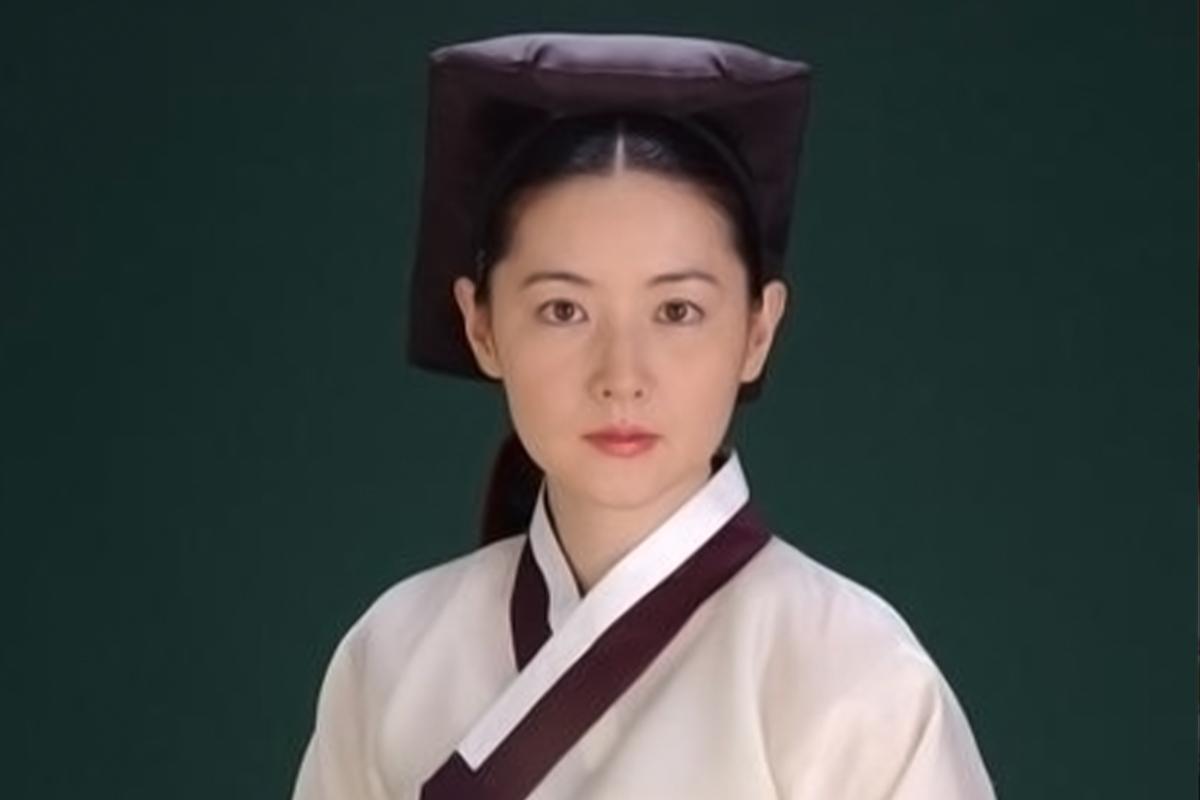
Dae Jang Geum, which aired from 2003 to 2004, was a smash hit that helped put Korean dramas on the map internationally.
Lead actress Lee Young-ae soon became one of the biggest Hallyu stars, with the show averaging an audience rating of 45.8%, and its highest rating being 57.1%.
The show was exported to Japan, China, and the Middle East, achieving 12 billion won in profits.
Plot Summary
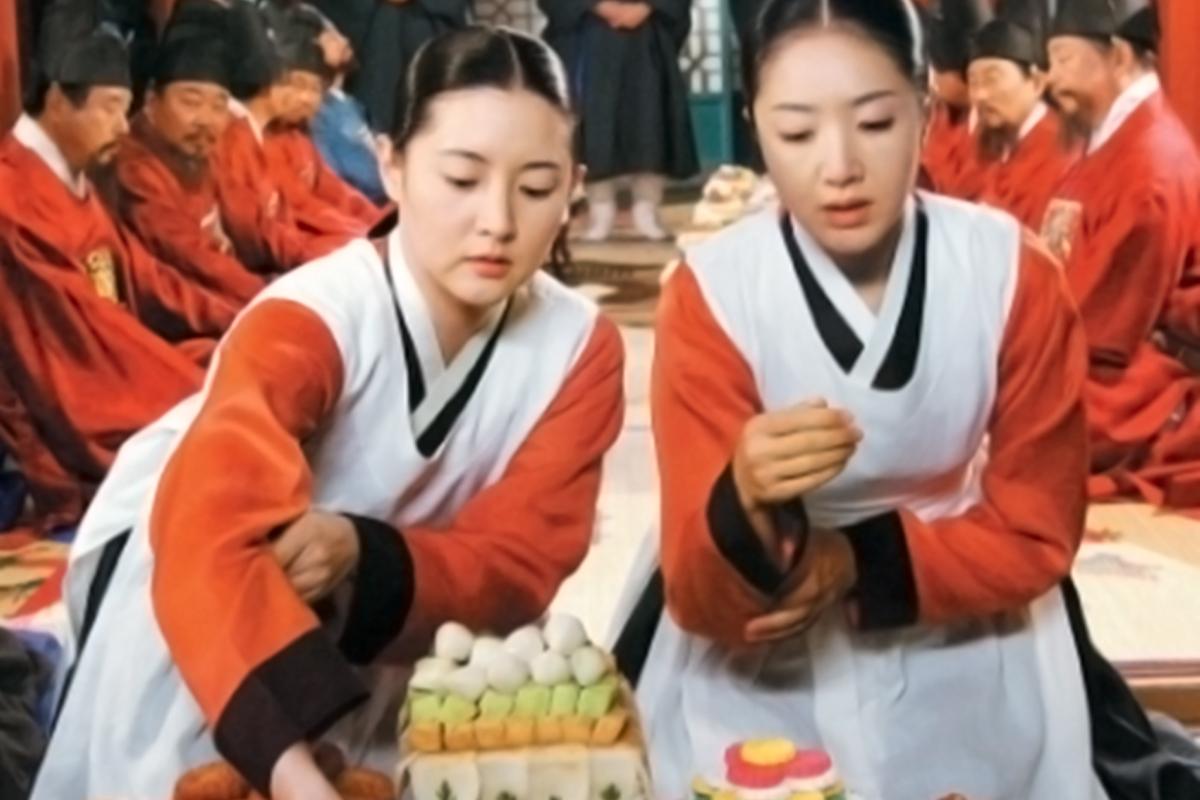 Source: MBC 대장금
Source: MBC 대장금
Jang-geum, daughter of a woman who worked in the palace kitchen, was born with absolute taste and genius cooking skills.
She entered the palace at a young age and worked as a cook, but was kicked out of the palace and exiled to Jeju Island when others, who felt threatened by and envious of her skills, conspired against her.
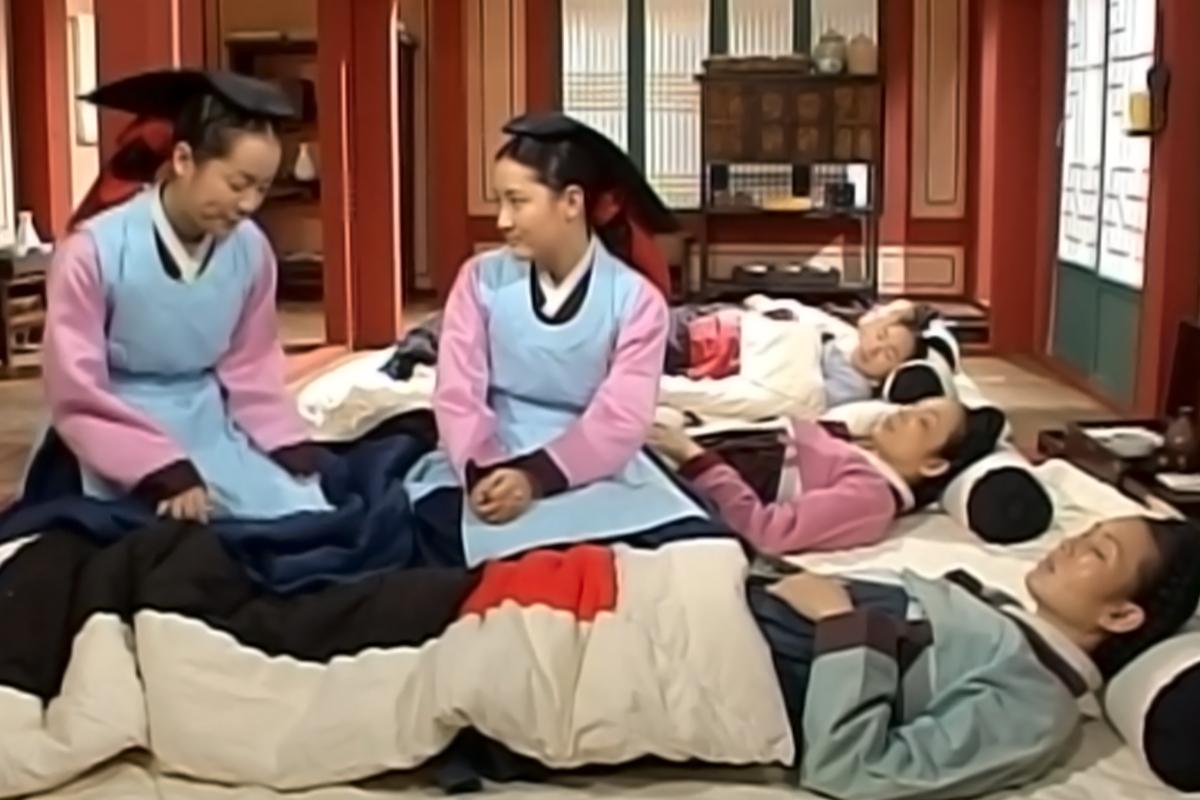 Source: MBC 대장금
Source: MBC 대장금
Jang-geum, while in exile, learned medicine and, after many trials and errors, went back to the palace to work as a doctor.
Her skills seemed to extend also to medicine and she would go on to reach the highest ranked position in the medical field, attending physician to the king.
The Facts
Jang-geum Was A Real Person
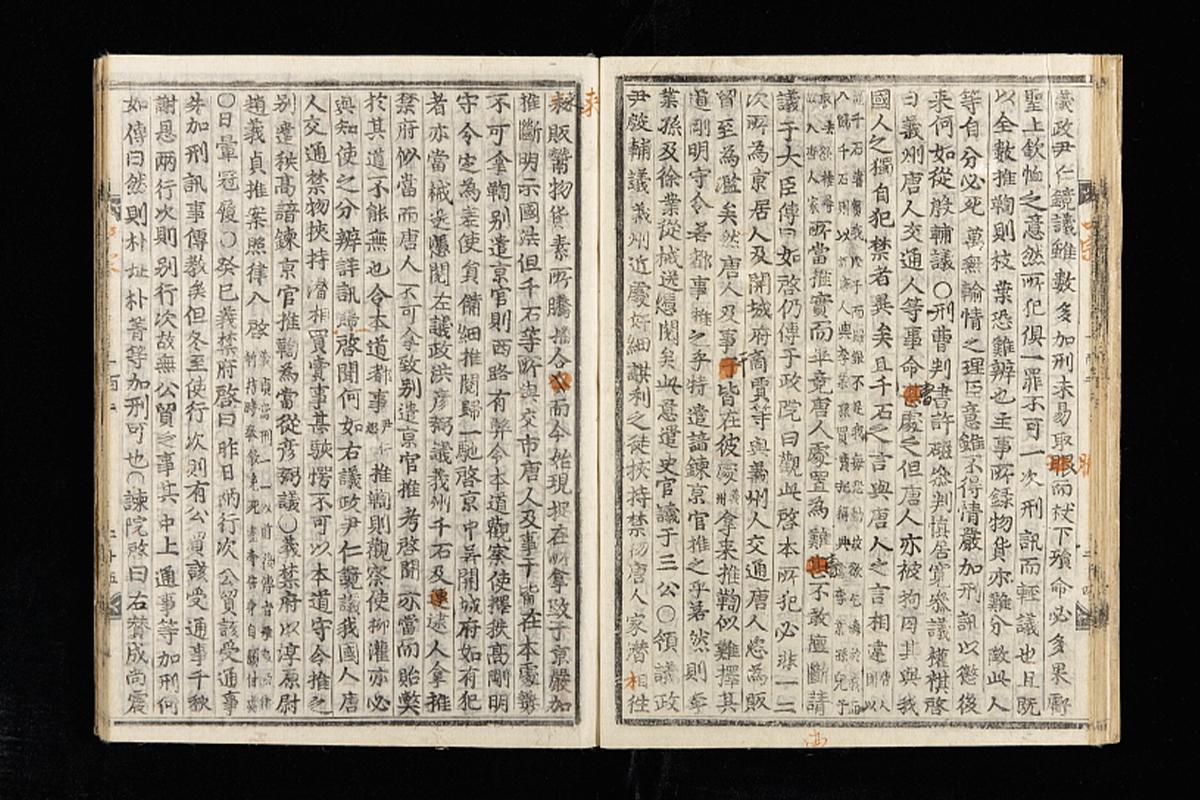 Source: MUSEUM NEWS
Source: MUSEUM NEWS
The name Jang-geum appears several times in the Annals of King Jungjong, the first time on March 21, 1515.
Queen Janggyeong, King Jungjong's second wife, died after giving birth to a Won-Ja (a son who will become crown prince), and Jang-geum's name is mentioned among the many people who attended the birth.
So we see right off the bat that indeed there was a real Jang-geum in the time of King Jungjong.
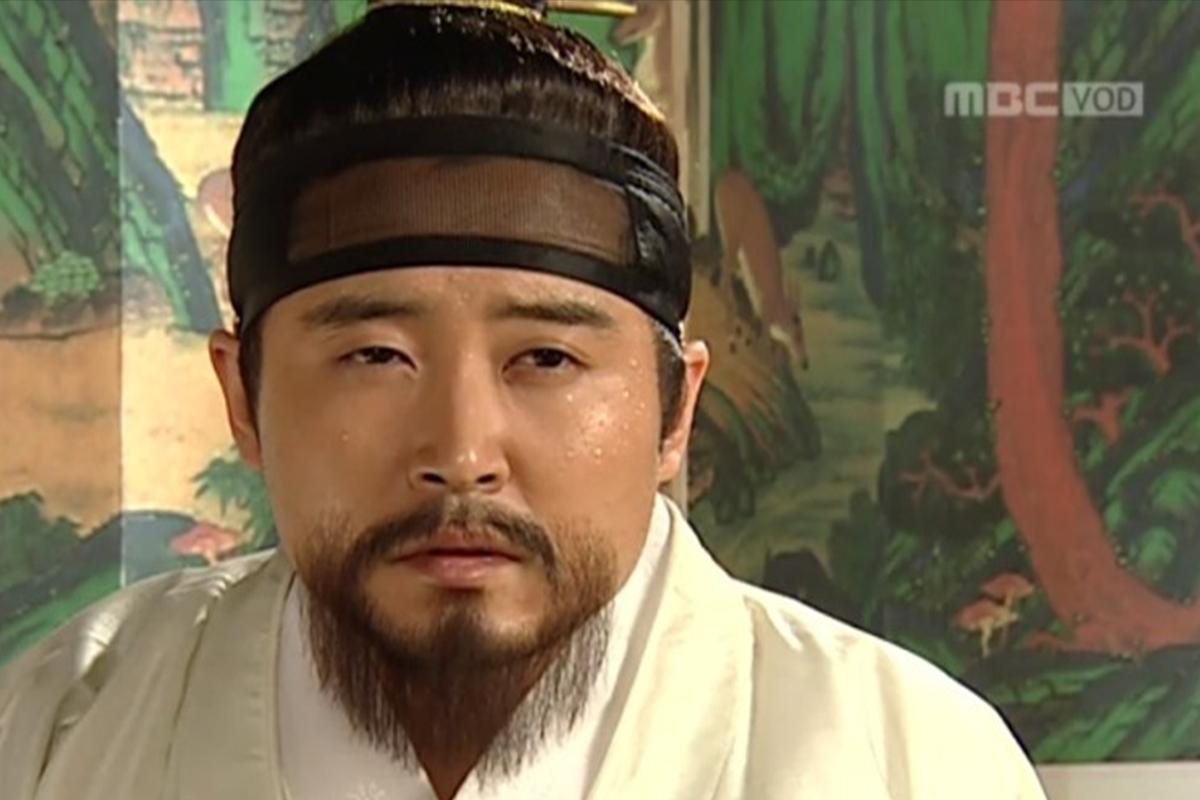 Source: MBC 대장금
Source: MBC 대장금
From that time, we see Jang-geum's examinations of the King often recorded up until the final diagnosis on October 29, 1544, just a couple weeks before King Jungjong's passing on November 15.
Gyeongbokgung Kitchens
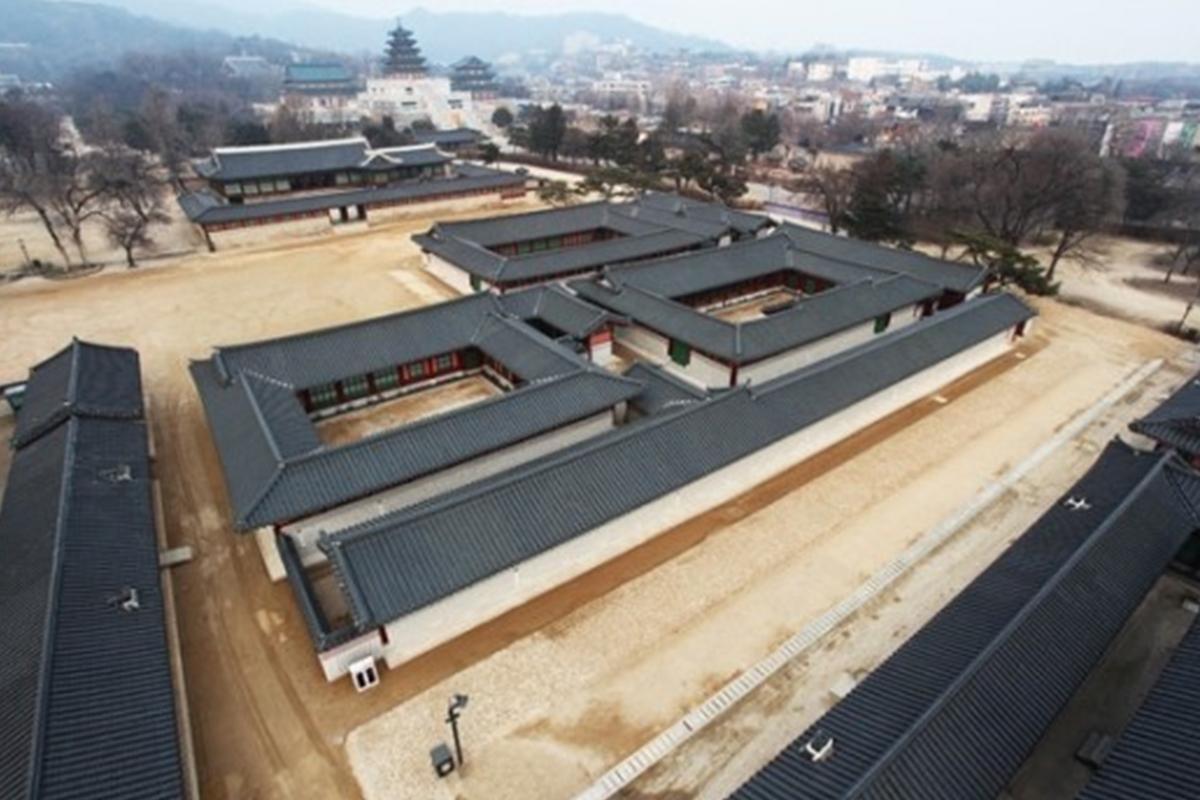 Source: 천지일보
Source: 천지일보
In the drama, Jang-geum prepares food for the king in the So Jubang (소주방), which is a real place at Gyeongbokgung Palace that has been restored.
Though it may sound like it could be a bar, a So Jubang is actually a kitchen that uses fire, jubang (주방) meaning kitchen.
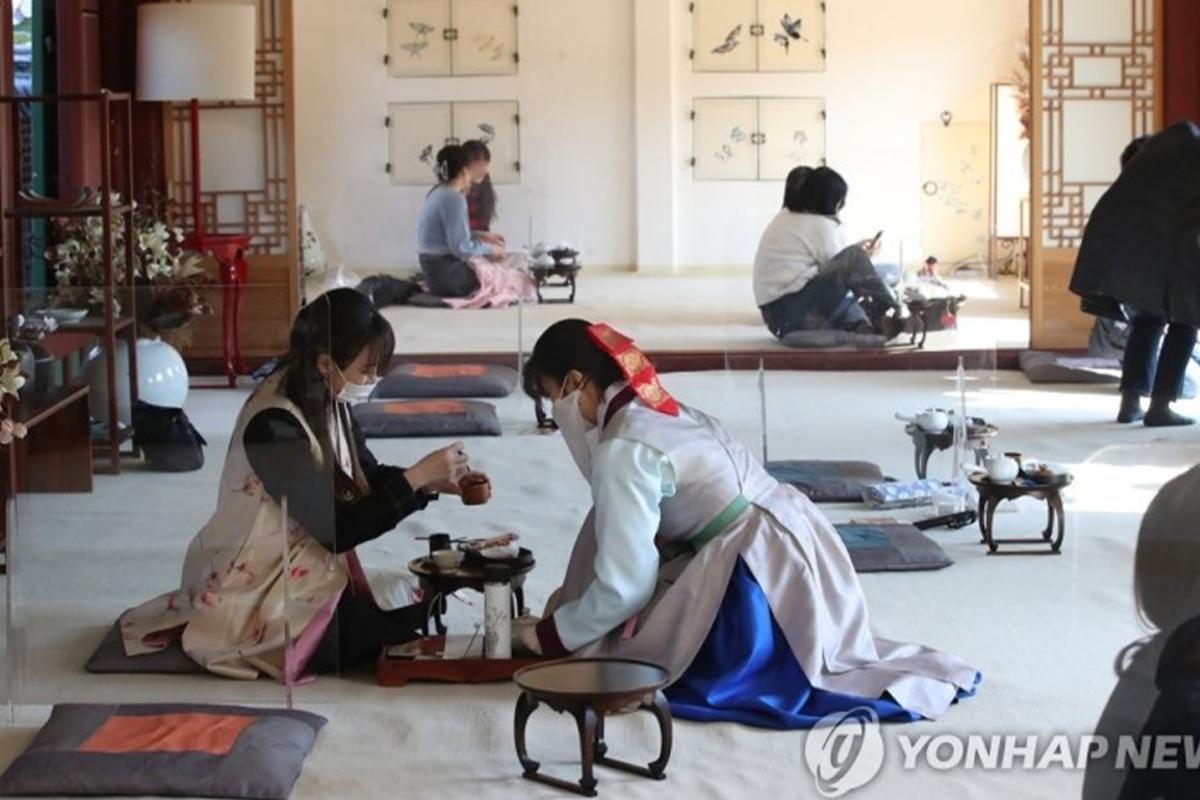 Source: 연합뉴스
Source: 연합뉴스
The So Jubang consisted of Naeso Jubang (내소주방), which prepared food for the royal family, Oeso Jubang (외소주방), which prepared the royal banquets, and Saenggwabang (생과방) which prepared drinks and snacks.
If you visit the Saenggwabang area, you can actually enjoy royal-style refreshments while gazing out at the palace scenery.
(Please note, due to COVID-19, they are currently operating on a reservation system that limits number of visitors.)
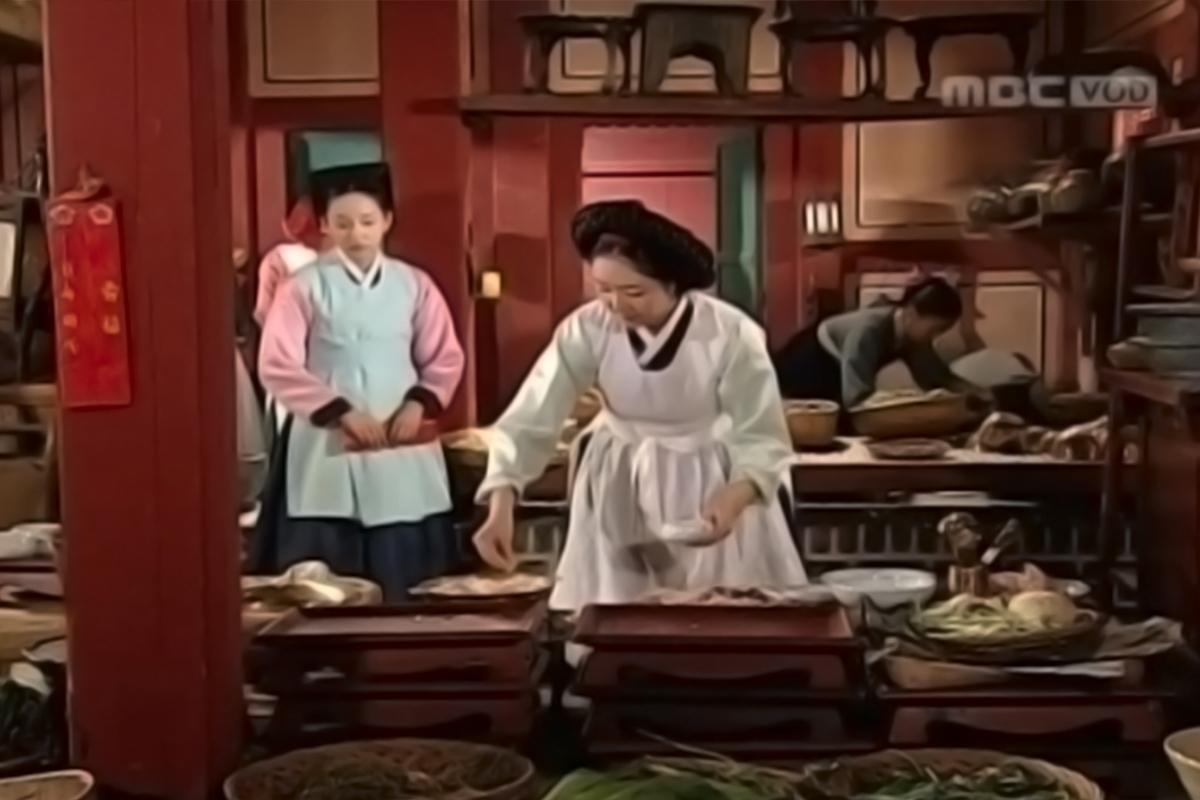 Source: MBC 대장금
Source: MBC 대장금
The king's meal is called "Sura" (수라), and in the drama, the royal kitchen is called Suragan (수라간), so viewers may be more familiar with that name than So Jubang.
In official literature, however, So Jubang is the term used, whereas the Suragan is known as the place where meals was planned, so there is a bit a of a difference between the actual terms and the terms used in the drama.
A Female Doctor In The Palace
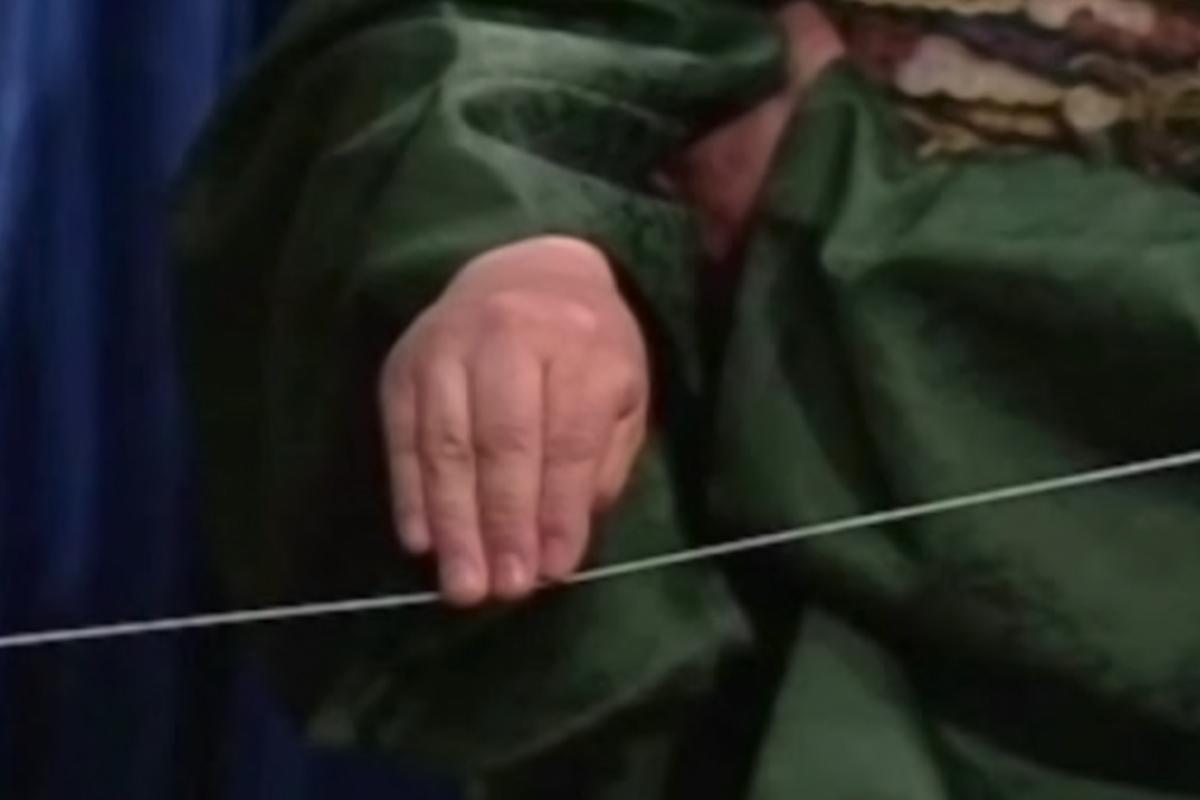 Source: SBS 여인천하
Source: SBS 여인천하
Joseon was a Confucian society, and as such, physical contact between men and women was banned, which made it extremely difficult for male doctors to attend to female patients.
In order to avoid direct physical contact, the doctors would tie threads to the wrists of royal female patients to indirectly take their pulses.
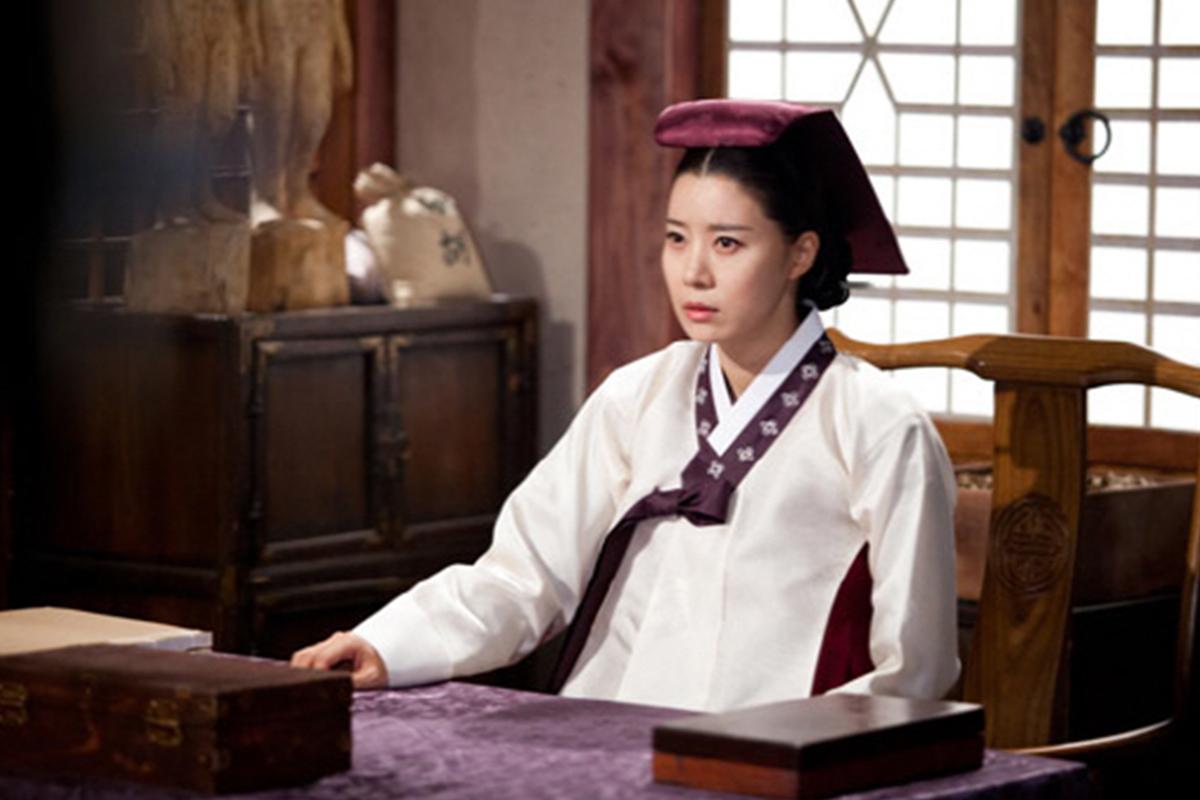 Source: MBC 마의
Source: MBC 마의
In addition, due to social awareness, female patients often refused to receive treatment from male doctors, resulting in serious illness and death from preventable causes.
To amend this, the position of Uinyeo (의녀), a female doctor, was instated in the palace.
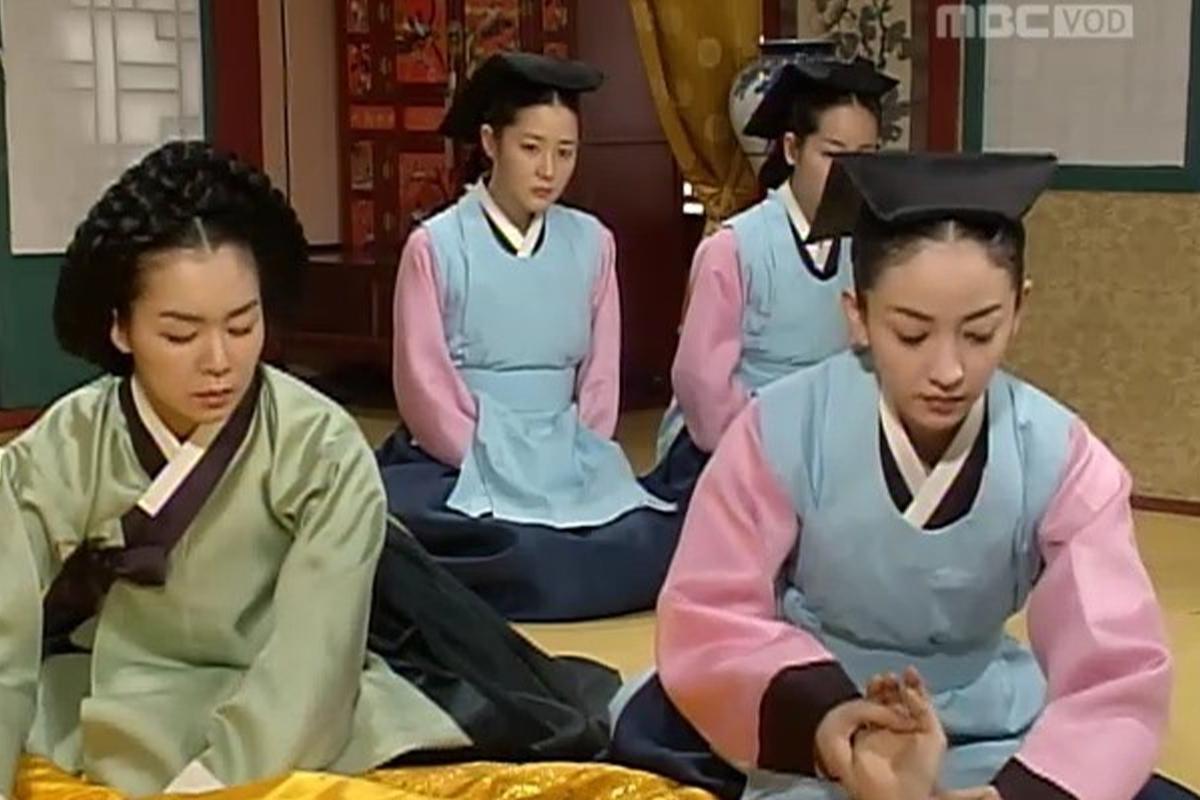 Source: MBC 대장금
Source: MBC 대장금
However, being a Uinyeo did not necessarily mean only caring for women. In the drama we see Jang-geum caring for King Jungjong, and although there are not many cases like this in real life, it is said that there have been other similar cases of medicine women treating Kings.
Trusted By King Jungjong
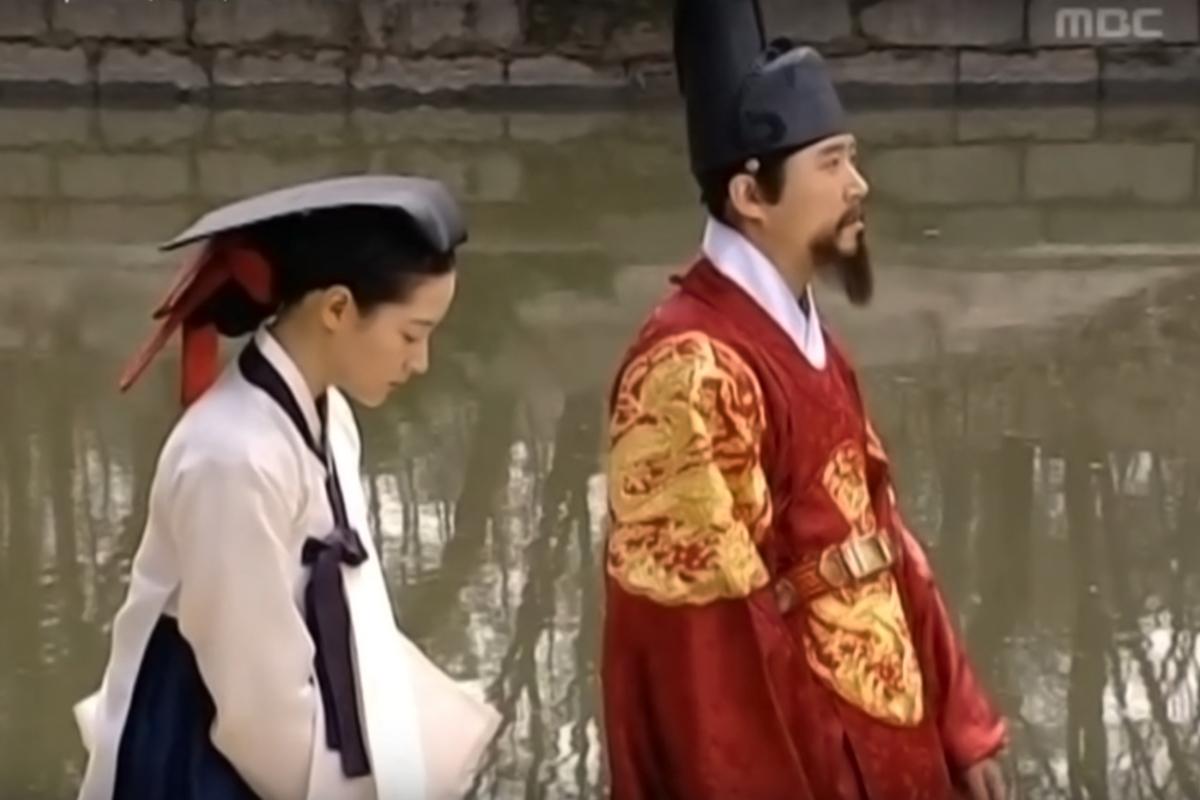 Source: MBC 대장금
Source: MBC 대장금
There is no official record of Jang-geum being the attending physician to the king, but it can be seen from the Annals, that King Jungjong trusted her and kept her very close.
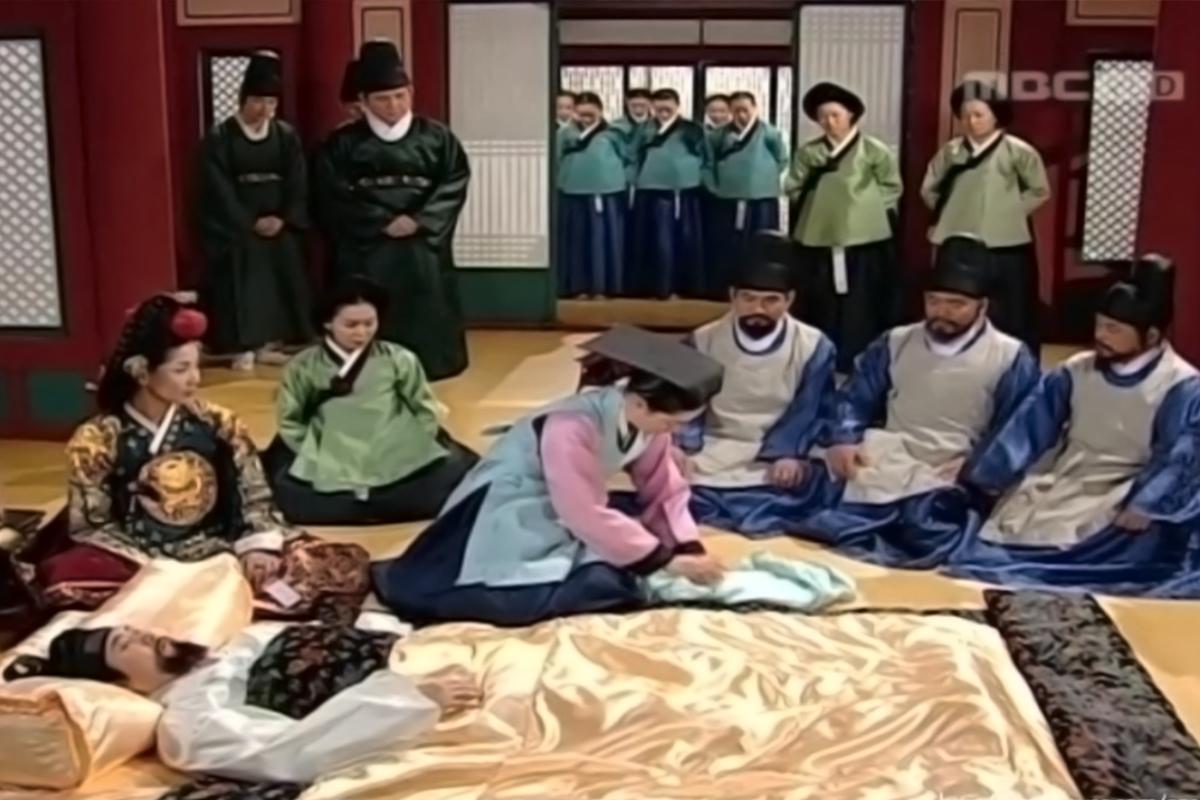 Source: MBC 대장금
Source: MBC 대장금
During the Joseon Dynasty, most treatment of kings was carried out by male doctors, however, King Jungjong entrusted Jang-geum with all important tasks such as measuring pulse, examinations, and prescribing medicine.
A male physician insisted it was vulgar for a woman to treat the king and tried to take over treatment, but King Jungjong refused him and continued to receive treatment from Jang-geum
Seo Jang-geum, Dae Jang-geum
 Source: LampCook
Source: LampCook
The title of the drama is Dae Jang Geum, but the actual character is known as Seo Jang-geum.
The Hanja for Dae in this case is 大 which means "big" or "great", and surprisingly the name Dae Jang-geum appears not only in the drama, but also the real life records of King Jungjong
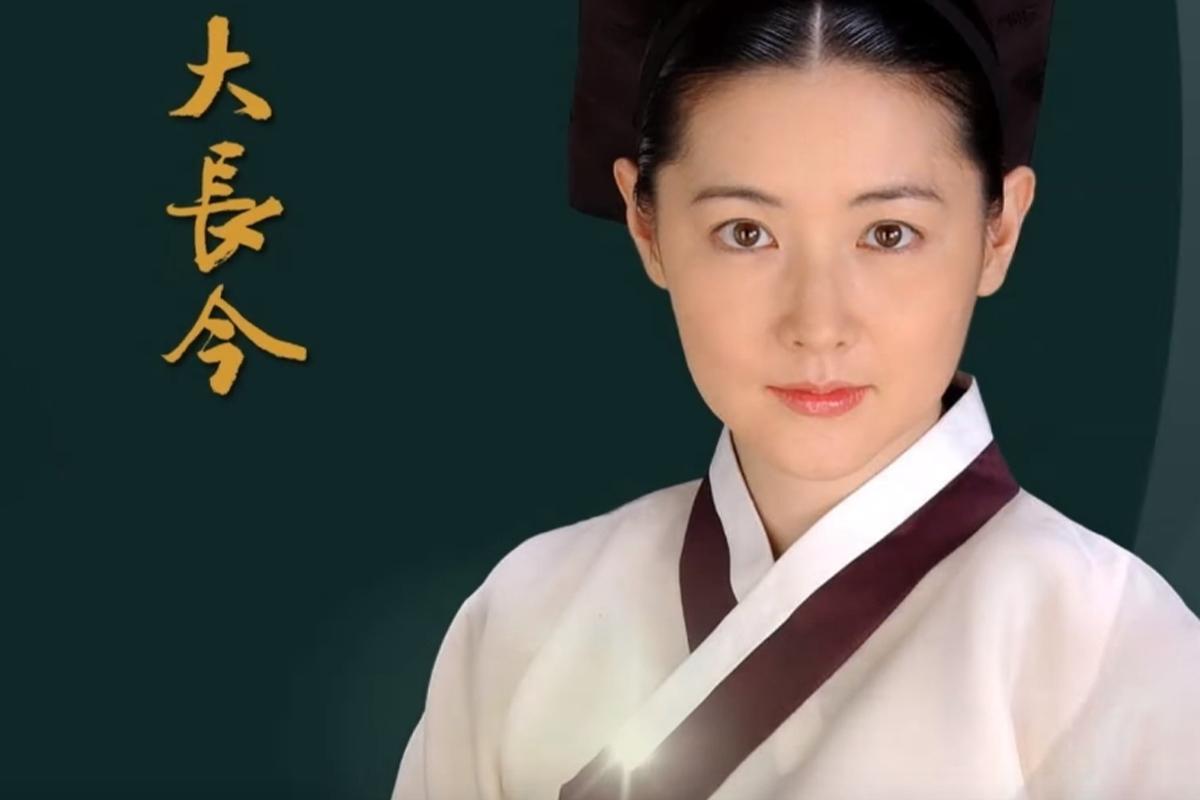
Jang-geum is mentioned about ten times in the Annals of King Jungjong, of which the name Dae Jang-geum is used five times, and the amount of grain she received as reward is also recorded.
In other words, there are speculations that the real Seo Jang-geum received the title of Dae Jang-geum, as in "The Great Jang-geum", directly from the king in recognition of her achievements.
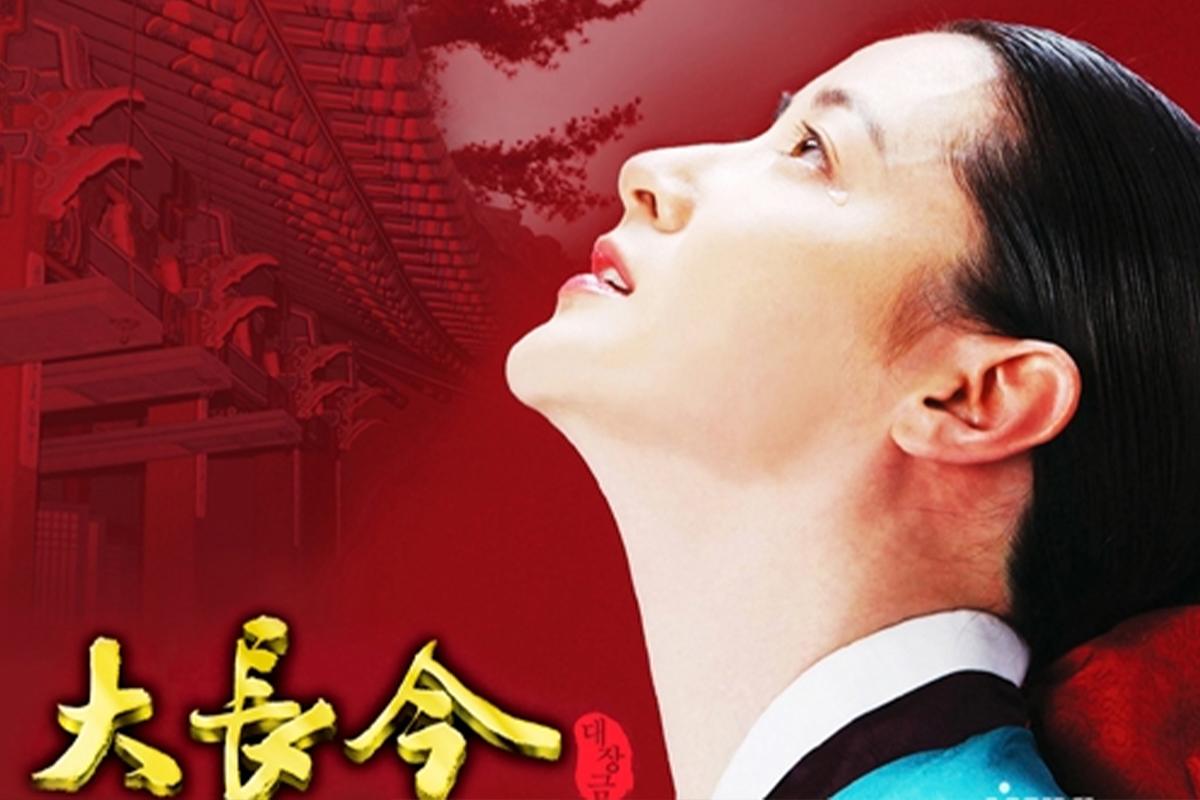
There are some opposing opinions however, that state it is not logical to conclude the king would give her such a grand title.
They believe it is more likely there were two Jang-geums in the palace at the time, so one was called Dae Jang-geum to specify they meant the taller of the two.
There is no way to actually confirm if the meaning is "great" or "big/tall", but the fact remains that the name Dae Jang-geum appears in historical records more than once.
Artistic Liberties
Jang-geum Was Not A Chef
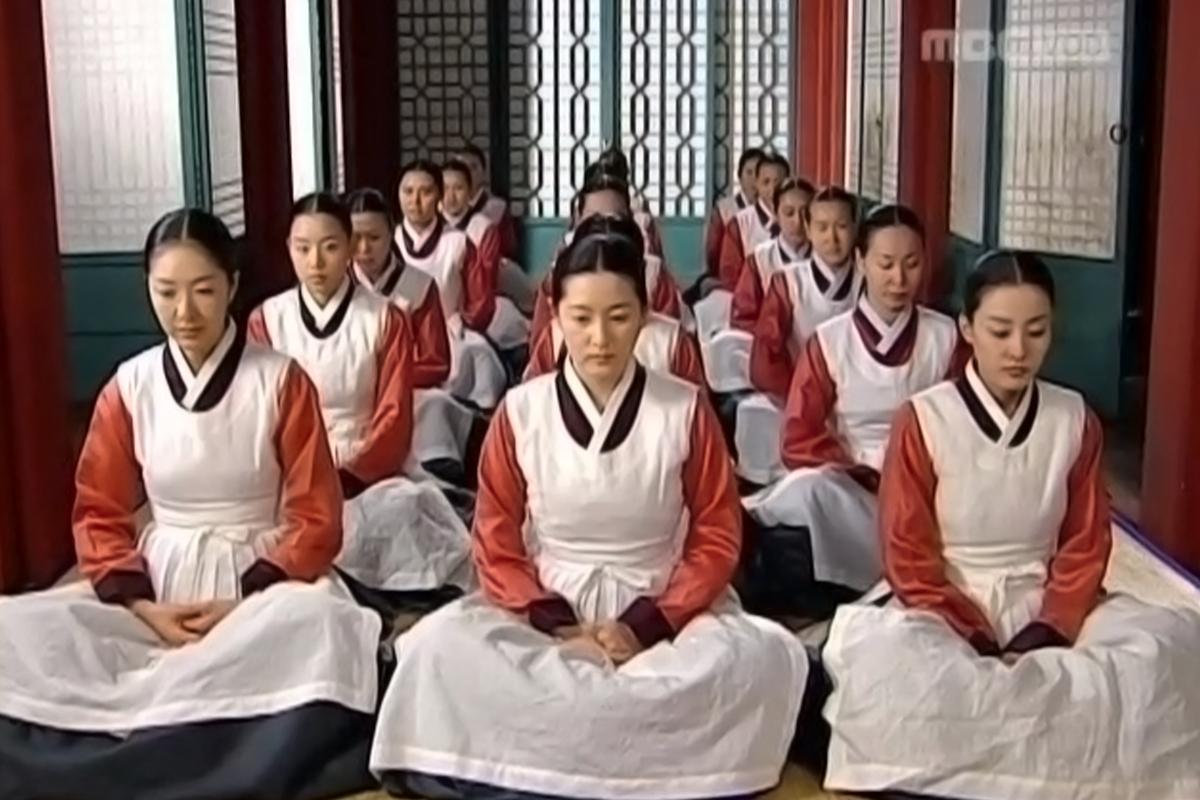 Source: MBC 대장금
Source: MBC 대장금
One of the major differences between the drama and historical fact, which may be a bit surprising, is that there is no record of Jang-geum working as a royal chef.
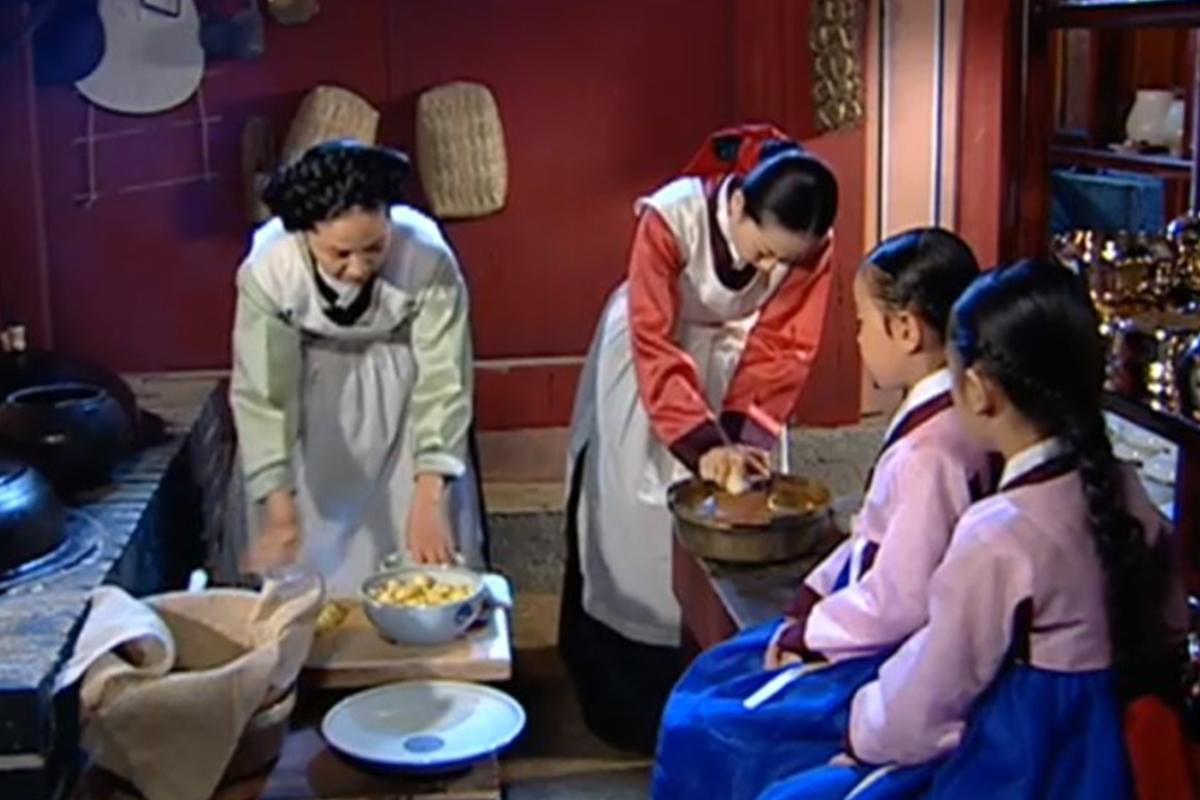 Source: MBC 대장금
Source: MBC 대장금
After Dae Jang Geum aired, people started calling those who were good at cooking Jang-geum, so there is a strong perception that Jang-geum = genius chef.
However, the story of Jang-geum entering the royal kitchens and competing with various chefs to overcome adversity is a fictional element added to the drama to make it more interesting.
The Real Royal Kitchens
 Source: MBC 대장금
Source: MBC 대장금
Due to the drama, the image of women preparing and being in charge of the royal meals was strongly established in viewers' minds, but in fact, this work much more labor-intensive than what you would think, and so in real life, most of the chefs in charge were men.
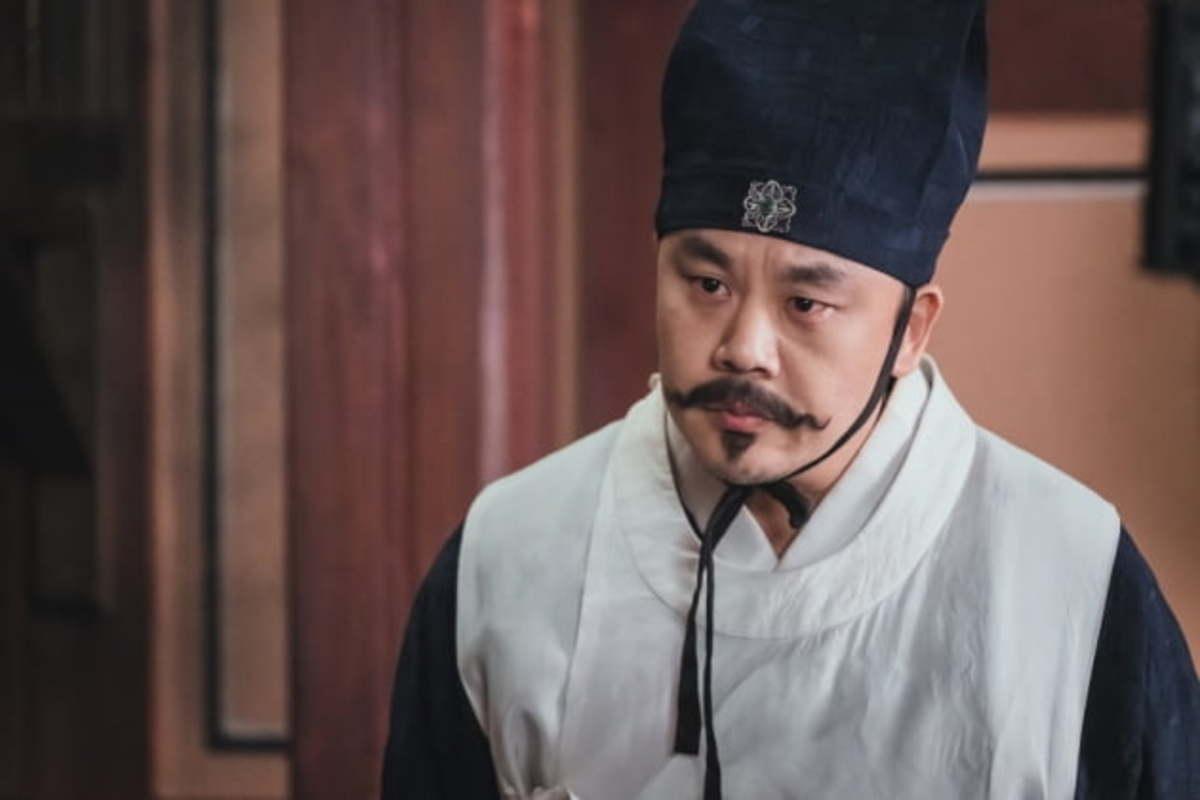 Source: tvN 철인왕후
Source: tvN 철인왕후
The Daeryeong Suksu (대령숙수) who were in charge of the royal food were male cooks. They were responsible for the five meals eaten by the royal family every day as well as snacks and drinks, banquets, and guest meals.
At that time all food was cooked over fires which were a lot of work to start and put out, so it is said the royal chefs prepared food in two shifts because they had to do all the physical labor including hauling the water as well.
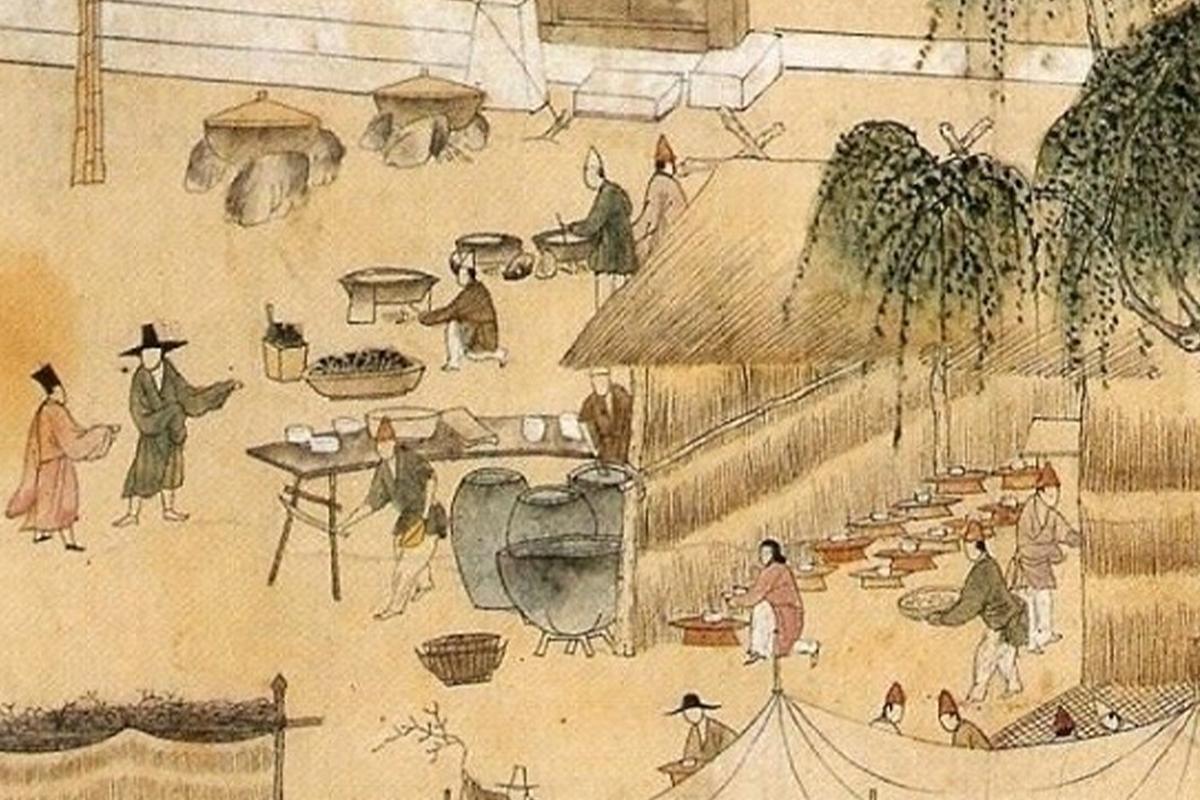 Source: 문화재청
Source: 문화재청
According to records in the Gyeongguk Daejeon, the ratio of men to women in the So Jubang was 14:1. Women were mostly in charge of setting the table and serving the food.
In other words, there is a huge difference between the show and reality in that Jang-geum was not a chef and women were not primarily in charge of the royal meals.
Conclusion
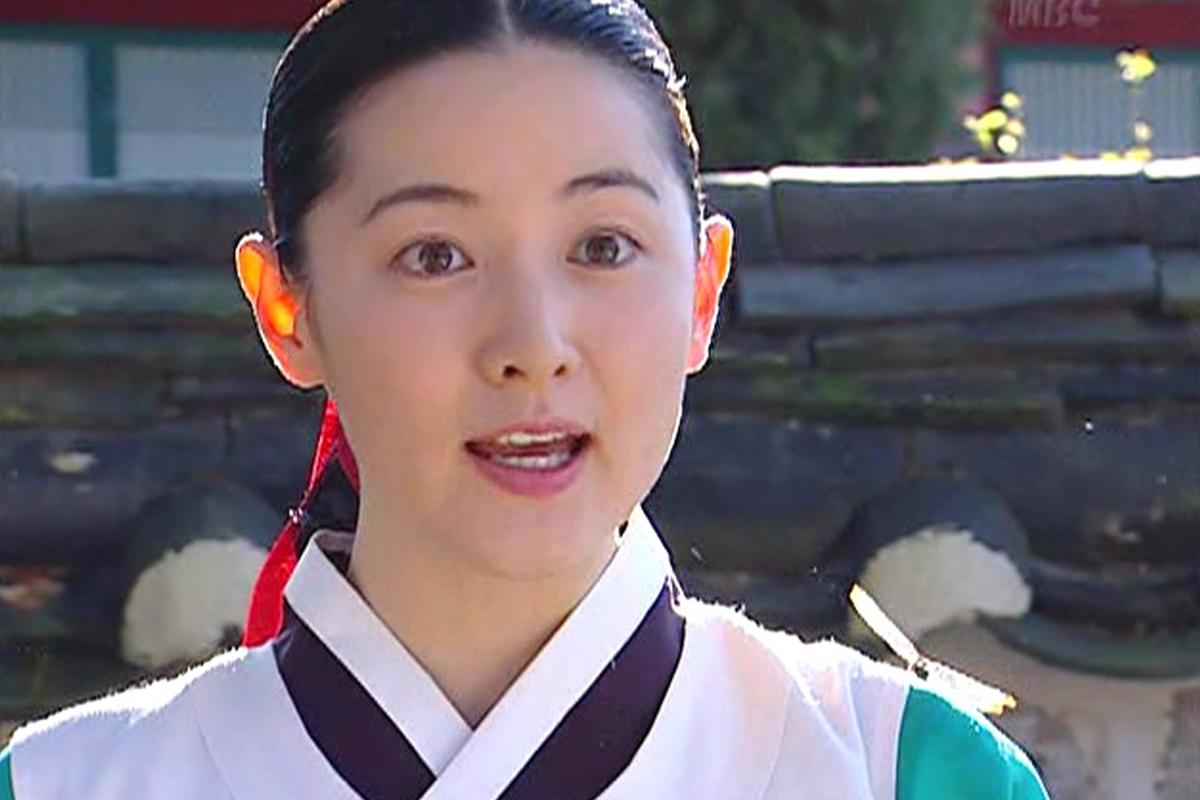 Source: MBC 대장금
Source: MBC 대장금
Clearly there are aspects of Dae Jang Geum based on real, documented information, such as the fact that she was a real doctor who was close to King Jungjong.
But of course, as with any dramatization, there were changes made for the sake of entertainment, like making her a genius cook. You can't help but wonder what the story would have been like had they not made her a chef.
In historical dramas, it is important to convey accurate historical information, but also very important to create a rich story that draws people in and keeps their attention, and I think in the case of Dae Jang Geum, they did an excellent job of keeping the important balance between the two in a respectful way.
That was our post on the real Dae Jang-geum, namesake of the hit K-drama.
While there are many things we will never know, what we do know is that the story of Jang-geum is an inspiring and empowering tale of perseverance in the face of adversity.
What are your thoughts on the show? What surprised you about the true story of Jang-geum?




